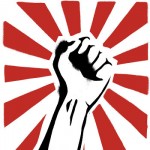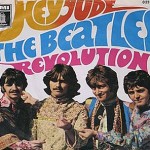What I greatly enjoyed about this course was how it taught us to think of revolutions in a more analytical way. Simply saying that a revolution is just an uprise from the civilian population against the government does not encompass the depth and uniqueness of revolutions. The one benefit of studying revolutions through the movies and texts we watched and read, was it broke down revolutions into more abstract and personal ways of thinking. This is something that cannot be accomplished by taking a history course or reading books that teach about them from a more pragmatic and standard approach. However, I would also argue that having this traditional way of learning about revolutions through history books would have benefitted my learning of revolutions in this course. I felt to some extent limited. I think learning about the historical context and the actual events and people specific to each revolution would have made this course more enjoyable. Nevertheless, as I mentioned earlier, studying revolutions through these more personal materials, has been very useful and offers us what I would argue, the true essence of a revolution; and that is that revolutions start from within, they come from a need, something personal. That is something that textbooks and history, I would argue, cannot fully create. We need to look and learn about revolutions first through “primary sources” meaning the people who were directly involved in the revolutions, whether on the revolutionary side, or counter-revolutionary side. This is after all, a fight for survival, and therefore the value and input of both sides is very significant and gives us a true sense of what the revolution was. Then, we can rely on “secondary sources” such as history textbooks that provide us with a more objective lens at revolutions. Having both “primary” and “secondary” sources, we can then find some balance and complete understanding of the uniqueness in each individual revolution.
Revolutions are not just to topple down an oppressive government. We have seen that the term can be applied to other instances. We talked about capitalism, feminism, student marginalization, personal struggles. These are other forces that we need to address with the collective support of our communities, but also with governments, business, NGOs, social movements, and each other. However way we look at revolutions, we use it as a banner, as a voice, as a collective but also individual shield, weapon, and power, to bring positive change. And we must never lose faith in our cause or in the revolution itself, for by that very nature, revolutions cease to exist. The revolution depends on each individual spirit and trust. And lastly, must revolutions be violent? We have learned that past revolutions whether successful or not, have nevertheless ended in the lives of innocent people on both sides. Revolutions as much as they bring together people, they also separate people by causing more antagonism towards each other. This however, might be revolutions’ very nature and something that we cannot change. But as a society that has grown and learned from our past mistakes, I hope that we can make revolutions more peaceful. If revolutions are personal and meant to bring change, there is nothing humane about killing other people. Obviously, I am thinking in a more humanistic and idealistic way. However, if we could theoretically achieve this, I think it would greatly challenge our current understanding of revolutions as being violent and something catastrophic. Nevertheless, if we could find an alternative, we could make revolutions something more meaningful, something not to be afraid of, but rather something that we know can work and bring positive change. We already live in a violent society with people dying of hunger, poverty, wars, governmental conflict, terrorism, natural disasters. Continuing our path of revolutions with more killing only undermines us and our goal for global progress. Therefore, we need to find alternative and better ways.
Overall, an interesting and enjoyable course. And this blog is probably the most important thing that I will take out of this course (along with everything else we learned in this course)


